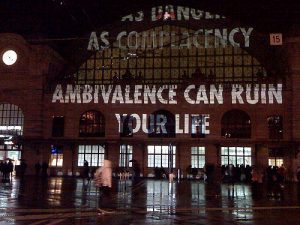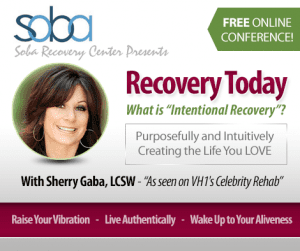 We want love, but we are afraid of it. We seek out a relationship and then sabotage it the first chance we get. We want space and when we get it we are lonely. We can’t live without a relationship and we can’t live with it. What is going on here? It is simple. We are ambivalent.
We want love, but we are afraid of it. We seek out a relationship and then sabotage it the first chance we get. We want space and when we get it we are lonely. We can’t live without a relationship and we can’t live with it. What is going on here? It is simple. We are ambivalent.
Ambivalence is the number one problem in relationships today. We are no longer bound by a social order that dictates we marry and have children. We are no longer bound by a division of labor where the man has his duties [bread winner] and we have ours [domestic bliss]. We have choices and now we are confused.
I sometimes think that this is the lost generation and that in many respects my generation had it easy. I was told to stroke a man’s ego. I was told to let him make all the decisions. I was told that I should have children. Unfortunately, I was not meant to be a housewife and mother. I was born to write which is what I am doing now. So everyone around me suffered, especially my children, as I tried to find myself. I have thus concluded that even if this generation is confused and unhappy, so was mine.
I recently wrote an article about knowing yourself and it took me a long time to discover my true identify. So my heart goes out to young people today who have so many choices they don’t know what to choose. The media tells they can have it all and they believe this. So they run themselves ragged trying to take all that life has to offer. Then they reach middle age and are unhappy with life and the choices they made. They dream about starting over again and they can’t. They take control the situation, which has always served them in the past, and try to fix everything right now.
Ambivalence is a double-edged sword. It can give you time to think things out before you make a commitment. Love addicts, who fall in love so quickly, would love ambivalence. But in the hands of a commitment phobic or a confused person it can be a nightmare.
There are no easy answers to this dilemma. One can sort through their childhood for the origins of their ambivalence. Were their parental role models ambivalent? Do the chaotic relationships in their family of origin give them an uneasy feeling when the fall in love and fall into a relationship? Do they idealize relationships because their family was so dysfunctional? Do they look for the perfect partner because their family was so imperfect? At least one of these thing is at work. Perhaps all.
To solve this dilemma, I suggest that you research healthy relationships, get into a recovery program for love addiction and love avoidance, find someone who can love you and cherish you and then stay committed even when you think you are being smothered even when you are not.
This worked for me. I stopped idealizing unavailable men like my father. I found someone who I was attracted to but not obsessed with. I gave the relationship a chance and after a while fell in love. Today I am happily married to someone I would never have chosen for myself twenty years ago. We are a work in progress.
Sherry Gaba, LCSW, Radio Host, Certified Transformation Coach and author of the award winning book, The Law of Sobriety: Attracting Positive Energy for a Powerful Recovery and Ecourse http://trainings.wakeuprecovery.com/. www.sherrygaba.com sherry@sgabatherapy.com. Find out if you are #codependent. Take my quiz: http://sherrygaba.com/co-dependency-quiz/ 30 minute strategy session with Sherry http://sherrygaba.com/product/30-minute-strategy-session-sherry-gaba/ . Check out Sherry’s new book, The Marriage and Relationship Junkie: Kicking your Obsession. http://amzn.to/2ymfM1p


